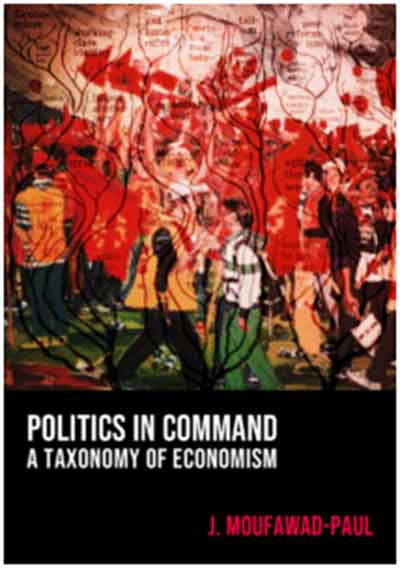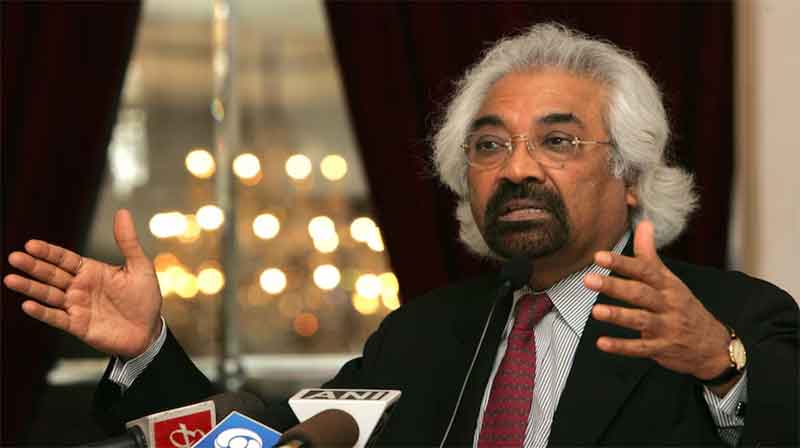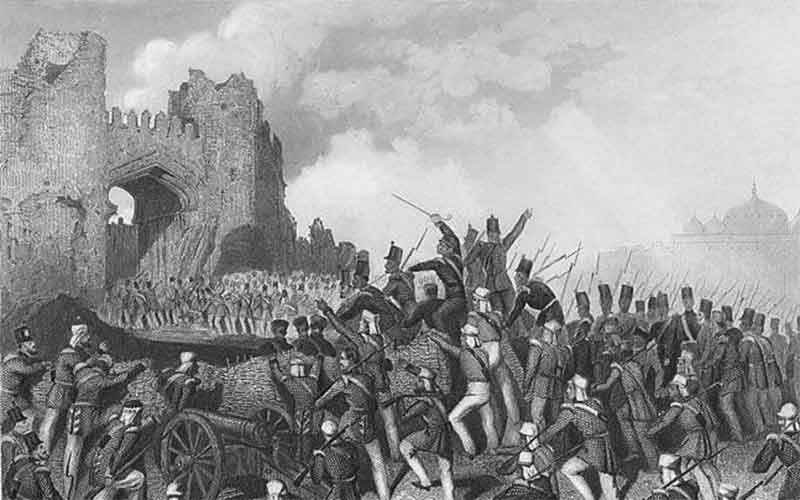‘Politics in Command ‘by Joshua Moufawad Paul, in it’s own right is a classic, which breaks conventional norms to resurrect Marxism-Leninism. The book continues the flow of his earlier works like ’’Continuity and Rupture’, ‘Critique of Maoist Reason’, and ‘The Communist necessity.’ It poses challenge to dogmatic approach.
The book investigates or probes into the very germinating of economism, deeply delving into its breeding ground and impact. It traces the ebb and flow in the history of the Communist movement and the dichotomy of conflicting trends. Book encompasses who are our Friends and enemies, how class is made and formulated, role identity plays in revolutionary struggle, relationship of economism with union organising, and how the proletariat develops revolutionary consciousness.
The book deeply touches upon the contradictions of the objective and subjective factors. It reflects on how today the nature of economism has drastically changed from the times of Marx or Lenin.
 A prominent theme of this book is on the significance of the Great Proletarian Cultural Revolution and the title of the book borrows name of one of it’s writings of 1969 ‘Politics in Command.’ It illustrates the striking contrast between lines of promoting productive forces and revolution, highlighting how Deng Xiaoping promoted economist line, in contrast to Mao. It portrayed the genesis of economism and voluntarism in movementism. The book touched upon subject of economic determinism .In it’s view it is sheer fallacy that economics govern s every action. In detail it projects the contrast between the line of CCP during the Cultural Revolution and that after 1978.
A prominent theme of this book is on the significance of the Great Proletarian Cultural Revolution and the title of the book borrows name of one of it’s writings of 1969 ‘Politics in Command.’ It illustrates the striking contrast between lines of promoting productive forces and revolution, highlighting how Deng Xiaoping promoted economist line, in contrast to Mao. It portrayed the genesis of economism and voluntarism in movementism. The book touched upon subject of economic determinism .In it’s view it is sheer fallacy that economics govern s every action. In detail it projects the contrast between the line of CCP during the Cultural Revolution and that after 1978.
The book is critical of conventional trade Unionism, but still strikes balance between promoting trade Unions and Revolutionary politics. It elaborates on how methods of organising have to be devised in accordance to modern times and the new phenomena prevailing. It projects how genuine revolutionary trade Union consciousness is inculcated, in contrast to bourgeois economism.
It analyses within classes various strata exists. It delves into the relationship between labour aristocracy and economism.The subject of spontaneity of the Working class on the stress was dealt with, and the manner the revolutionary forces should capitalise on it. The author deals with the topic of how subjective conditions are crystallised for a revolution.
The book analysed topic of relations in production and how capitalism cannot handle or cope with technology. It portrayed the trend of economic acelerationism prevailing in the world today. It described how economic reforms were superficial or cosmetic.
Philosophically it refutes mechanical materialist philosophy and champions historical materialism.. It praises the approach of Charles Bettleheim in garnering revolutionary democracy from below in production units. Book analyses that Class is not only objective and not only created by relations in production. Metaphysical or static understanding exists of class or by many intellectuals. There is classification of class into basic divisions . Proletariat has to be drawn out of the working class by a conscious team of political cadres. Book illustrates an example of self-examination undertaken by CCP in the late 1940’s of each individual through a committee examining incomes, wealth, possessions work etc, to determine the class in ‘Self-report Public appraisal This proves that subjective categories overlap the objective one. Subjective becomes primarial from the Objective.
It strongly defends concept of the Communist party as the vanguard .It launches a vendetta against writers like Hale Draper, who in it’s view disguise themselves as Marxists, but in actual fact are Trotskyites. Still it differs with the mechanical approach to the vanguard party and asserts that masses must posses right to check the party. It addresses the complexities of the role and functioning of a party in a revolutionary movement and Socialist Society.
Joshua Moufawad Paul with deep conviction portrays the essence of the teaching and practices of Marx, Lenin and Mao, and how in crucial junctures won the war against economism.
The author deals with subject of identity politics in modern times, highlighting the adverse effects worldwide.
Poignanatly, he addresses readers to deeply study all the Marxist classics, particularly ‘What is to be Done ‘.He marks out that conventional Leninism, has it’s limitations.
A positive feature is that the author narrates many personal experiences in his lifetime, in political work, illustrating ground reality.
There is a most useful account in a broadcast in podcast of Joshua Moufawad Paul, where most lucidly and incisively, he replies to questions on his book.
Appraisal
Quoting Canadian author Tyler Shipley “Despite its philosophical detail, Politics in Command is incredibly clarifying for people of the left trying to make sense of our situation in the 2020s. J. Moufawad-Paul deftly navigates the perilous and complicated terrain of identity politics and class reductionism to arrive at a satisfying critical analysis of economism, a problem rarely (if ever) addressed so directly and provocatively. At the core of this book is a compelling argument that our problem is not in giving analytical primacy to class relations, but in failing to understand the myriad ways class is itself shaped by race, gender and other forms of oppression not normally considered ‘economic,’ and how much is lost in our capacity to organize revolution when we fail to see class as a political, not just economic, category. Characteristically sharp and engaging, Moufawad-Paul again illustrates that the philosophical foundations of our ideology matter and that, if unattended, the scourge of economism leads us into organizational and theoretical dead ends. A book that is at once dynamic and polemical but simultaneously rigorous, nuanced, and sensitive to the specificities of its moment, Politics in Command should be read by everyone trying to build a new communist left.”
Quoting Dao-yuan Chou “With Politics in Command, J. Moufawad-Paul dissects and analyzes the issue of economism, giving devastatingly clear insight into the question of why, in spite of our many and varied efforts, the Left has been unable to advance in any meaningful, qualitative way towards building a revolutionary movement in the imperialist centers. Read this book if you seek to understand why the mass work, union involvement and Left unity efforts you’ve engaged in have failed to bring about the revolutionary consciousness among the workers that you’d hoped and planned for. Read this book if you struggle for revolution in an imperialist country knowing that conditions in the peripheries are different—and want also to understand how those differences impact class analysis, organizations, and organizing tactics and strategies. Moufawad-Paul is trained as a philosopher and works as an academic. But this and all of his political writing reveal at their core, a militant who strives above all else to make his unflinching and methodically evidenced work of use to those of us who seek to understand the world in order to change it. This book is highly relevant and immediately useful; it is a sharp tool to eviscerate the blunt, dogmatic obstacle of economism, in order to create and progress on the path to making revolution.”
Possible Weaknesses
The book possibly could make a reader go adrift from the basics or roots of Marxism-Leninism, particularly those who do not have a firm grounding in the Marxist or Leninist classics. In important respects it reflects a dichotomy or departure with original Marxism-Leninism. It’s analysis of the Chinese Cultural Revolution or Leninist Bolshevik party strike overtones of the New Left and is ecclectic, even if they do not intend to. In certain aspects his philosophical analysis is not coherent with Marx, Lenin, and Mao. His illustration of theoretical innovations of class struggle is ambiguous and somewhat adrift from original texts of Marxism –Leninism.
Harsh Thakor is freelance journalist who has done extensive research on Marxism-Leninism.















































